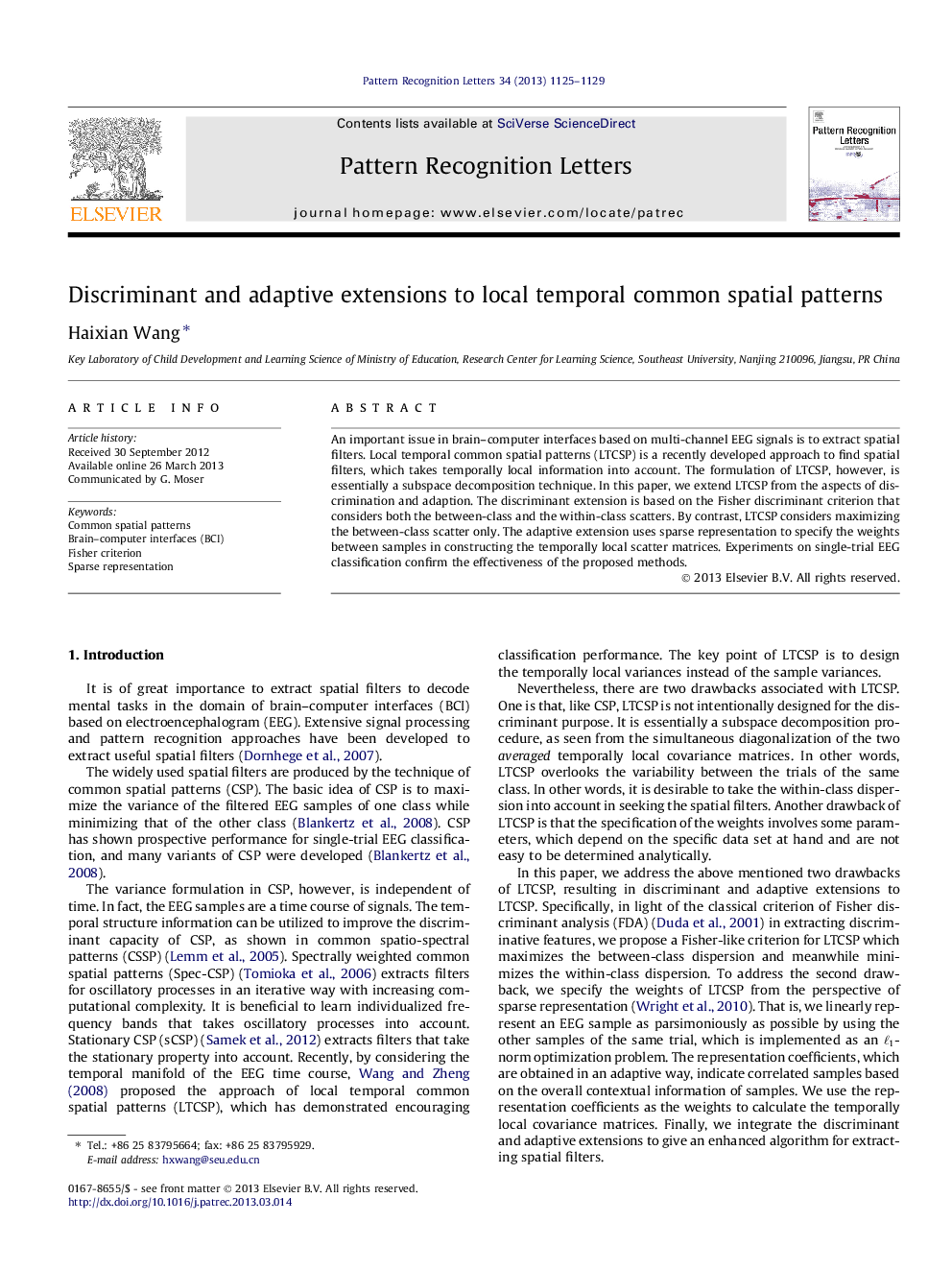| Article ID | Journal | Published Year | Pages | File Type |
|---|---|---|---|---|
| 535690 | Pattern Recognition Letters | 2013 | 5 Pages |
•A Fisher-like discriminant criterion is proposed to extend LTCSP.•An adaptive extension to LTCSP by sparse representation is proposed.•An adaptive extension to LTCSP by sparse representation is proposed.
An important issue in brain–computer interfaces based on multi-channel EEG signals is to extract spatial filters. Local temporal common spatial patterns (LTCSP) is a recently developed approach to find spatial filters, which takes temporally local information into account. The formulation of LTCSP, however, is essentially a subspace decomposition technique. In this paper, we extend LTCSP from the aspects of discrimination and adaption. The discriminant extension is based on the Fisher discriminant criterion that considers both the between-class and the within-class scatters. By contrast, LTCSP considers maximizing the between-class scatter only. The adaptive extension uses sparse representation to specify the weights between samples in constructing the temporally local scatter matrices. Experiments on single-trial EEG classification confirm the effectiveness of the proposed methods.
